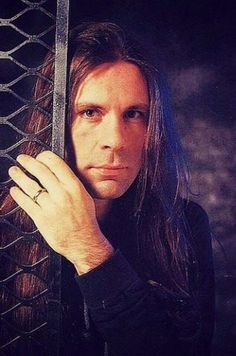Iron Maiden’s Bruce Dickinson Reveals He’s Been a Time Traveler Since 1982
By Marcus Talbot, Rock Crypt Weekly
In a revelation that has left fans stunned and theorists spiraling into Reddit rabbit holes, Bruce Dickinson—the operatic frontman of legendary British heavy metal band Iron Maiden—has admitted he’s been a time traveler since 1982.
Yes, you read that correctly.
During a recent interview on the obscure late-night podcast ChronoFrequency FM, Dickinson, now 66, nonchalantly dropped the bombshell in between stories of the band’s tour antics and musings on fencing.
“You know, I’ve actually seen the end of the world,” Dickinson said, sipping tea from a battered Iron Maiden mug. “Twice. Once in 2112, and again in 2436. Spoiler: we don’t make it either time. But the riffs? Oh, they’re incredible.”
At first, host Eileen Starborne assumed the comment was metaphorical or fueled by a particularly strong strain of British sarcasm. But Dickinson doubled down.
“I started time-hopping in 1982, just after The Number of the Beast dropped,” he explained. “The surge of energy from that album—it opened something. A rift. I stepped through it backstage in Des Moines. One second I was grabbing a beer, next second I was standing in a neon-lit Tokyo in 2099, surrounded by flying motorcycles and robots quoting Shakespeare. Took me weeks to find my way back. Missed soundcheck.”
He claims to have kept the secret for over four decades to avoid disrupting the space-time continuum—or getting institutionalized. But recent global shifts, coupled with what he describes as “a very loud calling from the timelines,” prompted him to finally speak out.
When pressed for details, Dickinson offered wild, vivid stories that, somehow, fit eerily well with both his onstage persona and the esoteric lyrics of Maiden classics.
“You think Seventh Son of a Seventh Son was just fiction?” he said, grinning. “That was a memory. A vision of a child born in the lunar colonies of 2270. He could speak to machines. Sang in frequencies that made gravity hiccup.”
He described traveling to dystopian Mars outposts, witnessing a Renaissance revival in 2700s Scandinavia, and once getting into a bar fight with a time-displaced Nikola Tesla in an interdimensional saloon “just outside normal reality.”
When asked why time travel doesn’t seem to have changed history, Dickinson explained with cryptic clarity: “Because history bends. It flexes. It remembers what it wants and forgets the rest. And sometimes, songs are the only things that stick.”
According to him, Iron Maiden’s music acts as a kind of temporal tether—a frequency that resonates across centuries. He described fans in the 25th century attending secret underground shows with holographic Eddie mascots and guitars made of light. “They know every word,” he said, eyes gleaming. “Even the B-sides.”
Naturally, many have dismissed his claims as eccentricity, marketing, or the side effects of decades of decibels. But a few strange coincidences have resurfaced in light of his confession.
For one, an odd mention in the footnotes of a declassified 1996 MI5 file refers to “a long-haired Englishman with a booming voice and suspicious knowledge of future aerospace tech.” Bruce is, notably, a licensed pilot and aviation enthusiast.
Then there’s the curious photograph from 1912 showing a man in the background of a shipyard, wearing what appears to be an Iron Maiden t-shirt. Experts called it a hoax—until now.
Still, skeptics abound. Dr. Helena Vargas, theoretical physicist at Cambridge, told Rock Crypt, “It’s an entertaining narrative, and Dickinson is certainly a master storyteller, but time travel remains scientifically unproven. Unless he’s willing to provide empirical evidence, this should be taken with a guitar pick’s worth of salt.”
But fans have been quick to embrace the story. Social media erupted with hashtags like #TimeTravelerBruce, #RunToTheFuture, and #IronMaidenChronicles. Fan art has flooded the internet, depicting Bruce battling cybernetic samurai in 2090 and jamming with Mozart in a candlelit Vienna pub.
Perhaps most intriguing is the mention of a “final album” Dickinson claims the band will release in 2033—an album “so powerful it resets a timeline.”
He wouldn’t elaborate on how exactly that happens, but did wink and say, “Eddie becomes real. That’s all I’ll say.”
What does the band think of this?
Steve Harris, bassist and founding member, reportedly chuckled when told of Bruce’s comments. “Sounds about right. He’s always been a bit ahead of his time.”
Whether this is elaborate performance art, a slow-burn concept project, or genuine truth hidden in plain sight, one thing is certain—Bruce Dickinson continues to blur the line between myth and man, past and future.
As he closed the interview, Dickinson offered one final thought: “If you ever find yourself in the year 2149, look for the stage built on top of an old AI factory in New Berlin. I’ll be the guy with the mic, still screaming ‘Run to the Hills.’”
Then he vanished.
Literally. The video recording glitched, and Bruce was gone—mid-sentence, mid-sip, mid-existence.
The podcast has since been removed. Eileen Starborne’s account is inactive. And somewhere, in some distant decade, a voice sings on.
